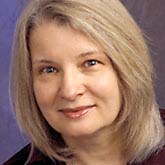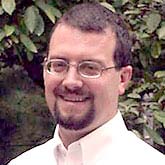February 28, 2013
Dear Board Member,
Our February update features a Thought Leader Series piece by Kara Hurst, CEO of The Sustainability Consortium and former vice president of BSR (Business for Social Responsibility). We also remember ASU's first State Climatologist, climate and solar energy pioneer Robert Durrenberger.
Please feel free to email or call us with any questions or comments about this briefing.
Best regards,
|
Sustainable consumption: Creating standards to deliver better products
 By Kara Hurst By Kara Hurst
Note: Kara Hurst is the CEO of The Sustainability Consortium (TSC), a joint initiative between Arizona State University and the University of Arkansas that is working to develop science-based tools for measuring and reporting consumer product sustainability.
By almost any measure, global consumption is growing rapidly. Yet many businesses still struggle to produce sustainable products, and most consumers don’t know how to identify and differentiate them. The result is: we continue to waste valuable natural resources, compromise ecosystems, and threaten human health.
Businesses and consumers desperately need a better system for assessing the sustainability of consumer products. To be viable, the system must be one that businesses can trust and consumers can easily apply to make informed decisions.
Such an assessment system must also be rigorously science-based, simple to understand, and fully transparent. And it must earn the buy-in of a vast cross-section of corporations, watchdog organizations, and governments.
Many stakeholders, many products
The Sustainability Consortium has been working to create such a system since its launch in 2009. Conceived as a global multi-stakeholder organization and structured as a joint initiative between Arizona State University and the University of Arkansas, the Consortium has grown to encompass nearly 30 colleagues at four global locations—Arizona, Arkansas, The Netherlands, and most recently China.
The primary goal of the Consortium is to develop science-based tools that advance the measurement and reporting of consumer product sustainability. The research required to meet that goal is comprehensive.
The Consortium currently covers more than 150 product categories across nine consumer product industry sectors, including food, beverages, agriculture, electronics, toys, paper, pulp, forestry, and home and personal care products. The work is made more robust and complete through our partnerships with civil organizations that help us better understand important stakeholder views. In the Consortium, we collaborate with more than 100 member companies and organizations to gather critical information and integrate research findings into business operations and strategies.
Read more »
|
In Memorium: Robert Durrenberger, ASU pioneer in arid land studies
|
|
Robert W. Durrenberger, a professor of geography at ASU from 1971-1982, will be remembered for establishing the Arizona State climatologist position at the university and for developing ASU’s climatology program. Read more » |

|
|
Keystone XL Pipeline: A Line in the Sand?
|
|
Earlier this month, panel of energy and oil experts shared their educated opinions on the heated controversy over the Keystone XL Pipeline, an issue at the forefront of climate change action and debate. Read more » |

|
GreenBiz.com article covers ASU's commitment to zero waste
|
|
Sustainability practices director Nick Brown says eliminating waste requires a deep cultural transformation. Read more »
|

|
Social norms, behavior influence environmental policy
|
|
In a BioScience journal article, sustainability experts say policymakers should take advantage of pre-existing, pro-environmental public behavior to thwart climate change. Read more »
|

|
Grant from Ray C. Anderson Foundation to fund innovative student capstone course
|
|
Building on CTI's iProjects program, the School of Sustainability will share faculty and scientists to educate on the social and environmental impacts of business and manufacturing process. Read more » |

|
ASU Decision Center for a Desert City students present at AAAS
|
|
Faculty, graduate, and undergraduate students shared their research on urban climate change adaptation at the American Association for the Advancement of Science Annual Meeting in Boston. Read more » |

|
Emission-estimating software appears in American Chemical Society Publications
|
|
Sustainability Scientist Kevin Gurney's "Hestia" program estimates greenhouse gas emissions across entire urban landscapes, all the way down to roads and individual buildings. Read more » |

|
Innovation, patenting fuels economy
|
|
A Brookings Institution report, co-authored by Sustainability Scientist José Lobo, finds Phoenix among the top 20 for U.S. patents from 2007 to 2011. Read more »
|

|
Researchers examine urban heat and human vulnerability
|
|
Lead investigator and Sustainability Scientist Sharon Harlan says education and outreach are built into the research to help policymakers and residents to deal with rising urban heat. Read more »
|

|
New directions in national energy policy: Skepticism about big initiatives
|
|
Sustainability Scientist Clark Miller says in an EnergyBiz article that current energy policy is raising public concern about climate change and U.S. energy production. Read more »
|

|
|